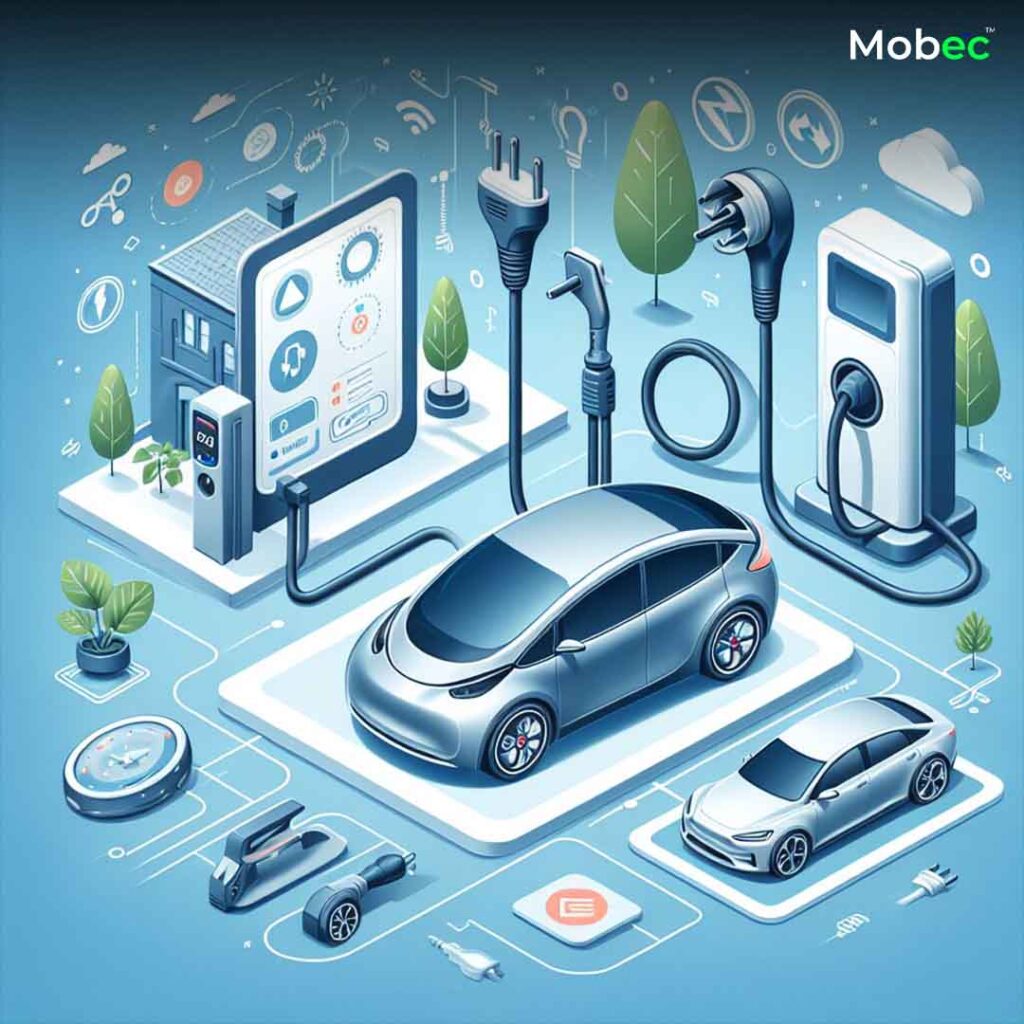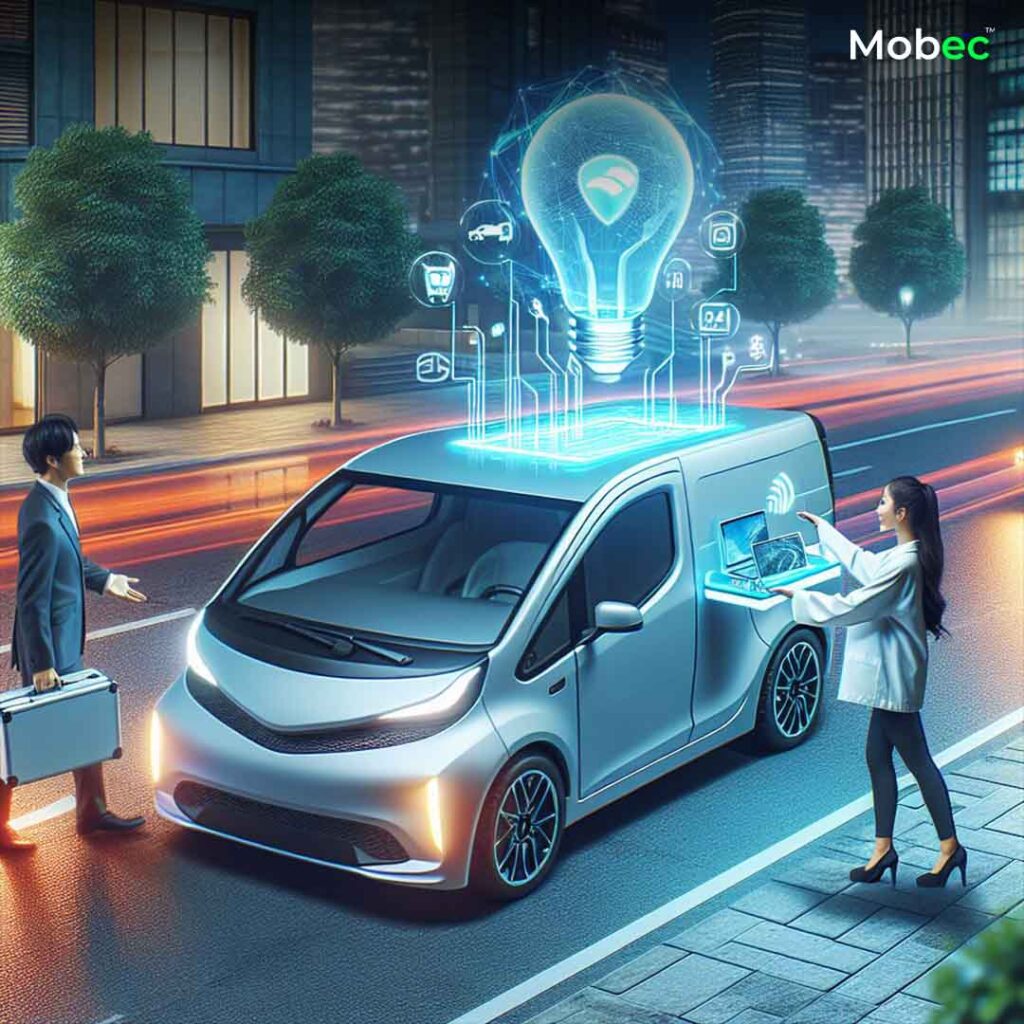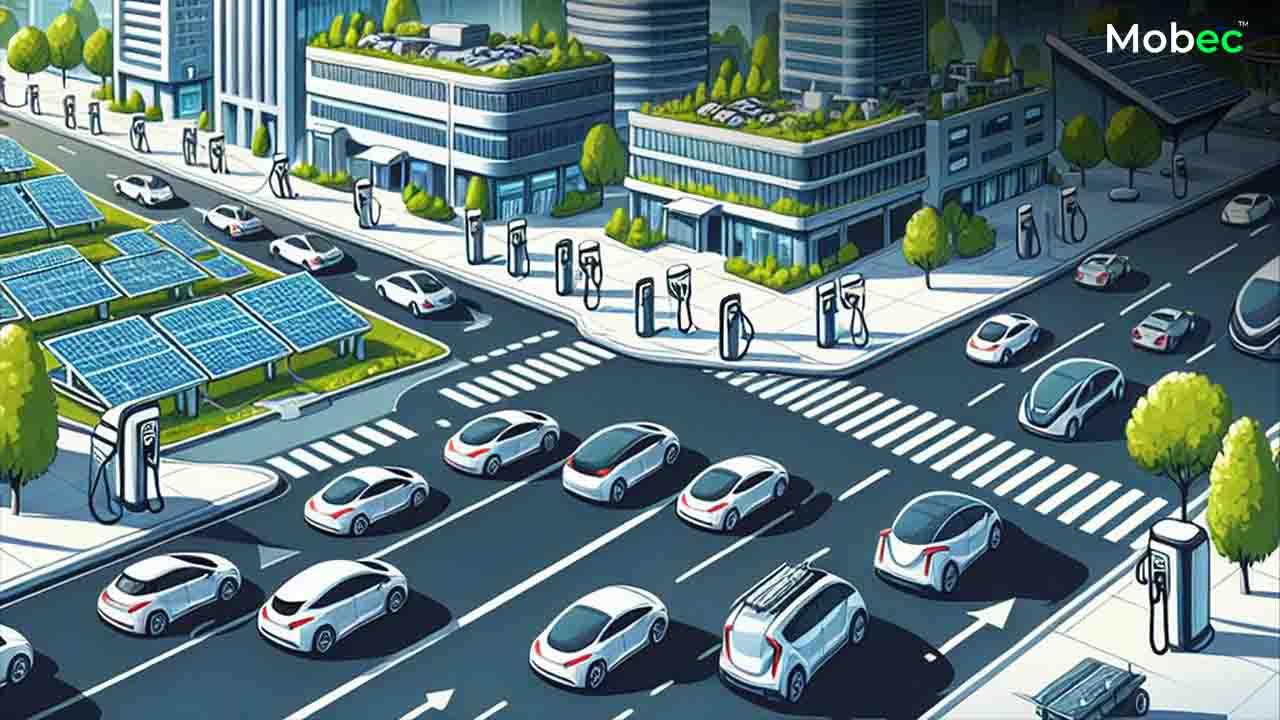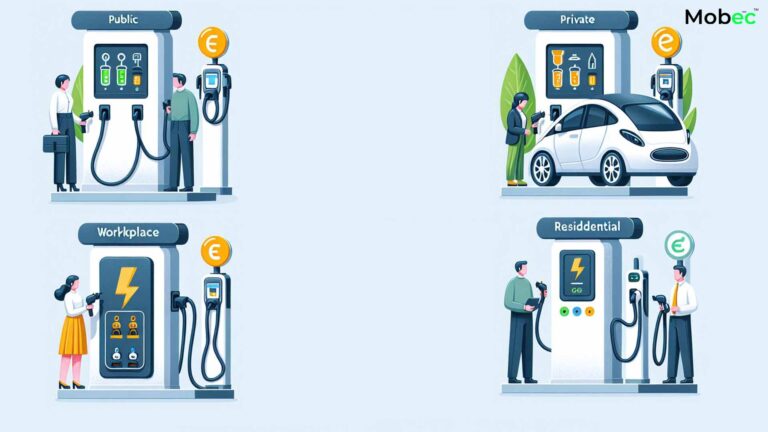In the wake of escalating environmental concerns and the pressing need to reduce carbon emissions, the widespread adoption of electric vehicles (EVs) has emerged as a crucial step toward achieving sustainable transportation and mitigating the adverse effects of climate change. The pivotal role played by charging stations in facilitating the widespread adoption of electric vehicles cannot be overstated. Charging stations serve as the backbone of the electric vehicle infrastructure, providing a crucial support system that enables EV owners to conveniently and efficiently charge their vehicles, thereby addressing the challenges associated with range anxiety and accessibility. In this comprehensive exploration, we delve into the significant role of charging stations in driving the widespread adoption of electric vehicles, examining their impact on consumer behavior, urban planning, and environmental sustainability.
The Foundation of Electric Vehicle Adoption

Charging stations serve as the foundation for the widespread adoption of electric vehicles, laying the groundwork for the integration of EVs into the mainstream transportation network and fostering a culture of sustainable mobility. As the primary interface between electric vehicles and the energy grid, charging stations play a vital role in promoting the accessibility, reliability, and convenience of electric vehicle charging services, thereby instilling consumer confidence and trust in the feasibility of electric vehicles as a viable and practical mode of transportation. The establishment of a robust charging station infrastructure network is essential for addressing the fundamental concerns of EV adoption, including charging accessibility, charging time, and charging affordability, and is instrumental in driving the transition towards a cleaner, greener, and more energy-efficient transportation ecosystem.
Key Components of an Effective Charging Station Infrastructure

An effective charging station infrastructure comprises several key components that collectively contribute to the seamless integration of electric vehicles into the transportation landscape and support the widespread adoption of sustainable mobility solutions. Some of the key components of an effective charging station infrastructure include:
- Diverse Charging Solutions: The availability of diverse charging solutions, including Level 1, Level 2, and DC fast charging, accommodates the charging needs of various electric vehicle models and enhances the accessibility and usability of charging stations for EV owners. By offering a range of charging options that cater to different charging speeds and charging capacities, charging stations can effectively address the diverse requirements of electric vehicle users and promote inclusivity within the electric vehicle charging ecosystem.
- Strategic Location Placement: The strategic placement of charging stations in key locations, such as residential neighborhoods, commercial districts, workplace parking facilities, and public transportation hubs, ensures the accessibility and visibility of charging infrastructure for electric vehicle owners. By strategically positioning charging stations in high-traffic areas and densely populated regions, charging station operators can maximize the utilization of charging services and promote the widespread adoption of electric vehicles within local communities and urban centers.
- Seamless Integration with Urban Planning: The seamless integration of charging stations with urban planning initiatives and sustainable development projects facilitates the incorporation of electric vehicle charging infrastructure into the design and functionality of urban landscapes. By integrating charging stations into public parking facilities, streetscape improvements, and transit-oriented developments, urban planners and city officials can create a more inclusive and accessible charging infrastructure network that supports the evolving needs of electric vehicle users and fosters a culture of sustainable urban mobility.
- Smart Charging Management Systems: The implementation of smart charging management systems enables the efficient management and optimization of charging station operations, including charging schedules, energy consumption, and billing processes. By leveraging intelligent charging management solutions, charging station operators can monitor charging activity, balance charging loads, and prioritize energy distribution based on demand and grid capacity, thereby promoting energy efficiency, grid stability, and cost-effective charging services for electric vehicle owners.
- Interoperable Charging Networks: The development of interoperable charging networks and universal charging standards facilitates cross-platform compatibility and promotes seamless connectivity between different charging station operators and electric vehicle manufacturers. By establishing standardized charging protocols and universal charging interfaces, charging station operators can eliminate compatibility barriers and streamline the charging experience for electric vehicle users, ensuring that they can access charging services seamlessly regardless of the charging standards supported by their vehicles.
The integration of these key components within the charging station infrastructure framework is essential for establishing a comprehensive and reliable electric vehicle charging ecosystem that fosters the widespread adoption of electric vehicles and supports the transition to a more sustainable and energy-efficient transportation infrastructure.
Promoting Consumer Confidence and Accessibility

Charging stations play a vital role in promoting consumer confidence and accessibility within the electric vehicle market, enabling consumers to embrace electric vehicles as a practical and viable mode of transportation that is supported by a robust and reliable charging infrastructure network. The accessibility of charging stations in residential areas, commercial districts, and public spaces empowers consumers to make informed decisions about electric vehicle ownership, alleviates concerns about charging accessibility and range limitations, and fosters a sense of trust and reliability in the capabilities of electric vehicles to meet their daily transportation needs. The presence of charging stations in strategic locations encourages consumers to consider electric vehicles as a sustainable and eco-friendly alternative to traditional gasoline-powered vehicles, promoting a shift towards cleaner and more energy-efficient transportation options that prioritize environmental sustainability and promote responsible energy consumption practices.
By providing convenient and accessible charging options, charging stations contribute to the normalization of electric vehicle ownership and promote a culture of sustainable mobility that transcends traditional transportation norms and embraces the benefits of clean energy transportation solutions. The integration of charging stations into the daily routines of consumers, businesses, and communities fosters a sense of community engagement and environmental stewardship, encouraging individuals to actively participate in the ongoing transition towards a more sustainable and emission-free transportation future.
Impact on Urban Planning and Sustainable Development
The integration of charging stations into urban planning and sustainable development initiatives has a transformative impact on the design and functionality of urban landscapes, fostering the creation of electric vehicle-friendly communities and eco-conscious urban environments that prioritize the integration of clean energy transportation solutions and promote the adoption of sustainable mobility practices. The incorporation of charging stations into public infrastructure projects, mixed-use developments, and transit-oriented communities promotes the accessibility and visibility of electric vehicle charging infrastructure within urban centers, encouraging residents, businesses, and visitors to embrace electric vehicles as an integral component of a modern and sustainable urban lifestyle.
Urban planners and city officials play a critical role in facilitating the integration of charging stations into the fabric of urban environments, advocating for the inclusion of charging infrastructure in zoning regulations, building codes, and development guidelines, and collaborating with charging station operators and electric vehicle manufacturers to establish comprehensive charging networks that cater to the evolving needs of urban communities and support the growing demand for electric vehicles. By prioritizing the integration of charging stations into urban planning and sustainable development initiatives, city planners and policymakers can create a more resilient and environmentally conscious urban landscape that fosters the adoption of electric vehicles and supports the transition to a cleaner, greener, and more sustainable transportation ecosystem.
Environmental Benefits and Sustainable Transportation Practices
Charging stations contribute to the promotion of sustainable transportation practices and the reduction of carbon emissions, playing a crucial role in the advancement of environmental sustainability and the preservation of natural resources for future generations. By facilitating the widespread adoption of electric vehicles, charging stations enable consumers to reduce their reliance on fossil fuels, minimize air pollution, and lower their carbon footprint, thereby contributing to the mitigation of climate change and the promotion of a more sustainable and eco-friendly transportation infrastructure.
The environmental benefits of charging stations extend beyond the reduction of greenhouse gas emissions to include the promotion of renewable energy integration, energy conservation, and the adoption of energy-efficient transportation solutions that leverage clean energy sources and promote responsible energy consumption practices. By encouraging the use of renewable energy sources, such as solar power, wind energy, and geothermal energy, to power charging stations, stakeholders within the electric vehicle industry can promote the sustainable utilization of clean energy resources and support the transition to a more resilient and environmentally friendly energy ecosystem that prioritizes environmental conservation and energy independence.
The adoption of sustainable transportation practices supported by charging stations underscores the transformative impact of electric vehicles on the overall sustainability of the transportation sector, positioning charging infrastructure as a key enabler of the ongoing transition towards a cleaner, greener, and more energy-efficient transportation ecosystem that promotes the well-being of both present and future generations.
The Future of Electric Vehicle Adoption and Charging Infrastructure
The future of electric vehicle adoption and charging infrastructure is poised to witness significant advancements, transformative innovations, and paradigm shifts that will redefine the way we perceive and engage with electric vehicles, charging stations, and sustainable mobility solutions. As the global transportation industry continues to prioritize sustainability, invest in renewable energy sources, and embrace technological breakthroughs, the integration of charging stations into the mainstream electric vehicle ecosystem will play a central role in driving the transition to a more sustainable, energy-efficient, and interconnected transportation infrastructure that is capable of meeting the evolving needs of a rapidly changing world.
From the development of comprehensive charging infrastructure networks and smart charging management systems to the integration of charging stations with renewable energy sources and sustainable urban planning initiatives, the future of electric vehicle adoption and charging infrastructure is characterized by a commitment to innovation, sustainability, and environmental responsibility that transcends the boundaries of traditional transportation models and paves the way for a more interconnected, resilient, and sustainable mobility ecosystem that prioritizes the well-being of both present and future generations.
Conclusion
Charging stations play a critical role in enabling the widespread adoption of electric vehicles, serving as the backbone of the electric vehicle infrastructure and supporting the integration of sustainable transportation solutions into the mainstream transportation network. By promoting consumer confidence, fostering accessibility, and advancing sustainable urban planning initiatives, charging stations contribute to the normalization of electric vehicle ownership and the promotion of a culture of sustainable mobility that prioritizes environmental stewardship and energy conservation. The integration of charging stations into urban landscapes and sustainable development projects fosters the creation of electric vehicle-friendly communities and eco-conscious urban environments that embrace the benefits of clean energy transportation solutions and promote the adoption of sustainable transportation practices.
As we look ahead to the future of electric vehicle adoption and charging infrastructure, we are presented with an opportunity to embrace a more sustainable and energy-efficient transportation infrastructure that is capable of meeting the diverse needs of a rapidly changing world and shaping the future of sustainable mobility for generations to come. By prioritizing the integration of charging stations into urban planning initiatives, promoting the adoption of sustainable transportation practices, and fostering a culture of environmental responsibility and energy conservation, stakeholders within the electric vehicle industry can contribute to the realization of a cleaner, greener, and more accessible transportation future that supports the well-being of both present and future generations and promotes the sustainable development of our global communities.






















[…] […]
[…] […]